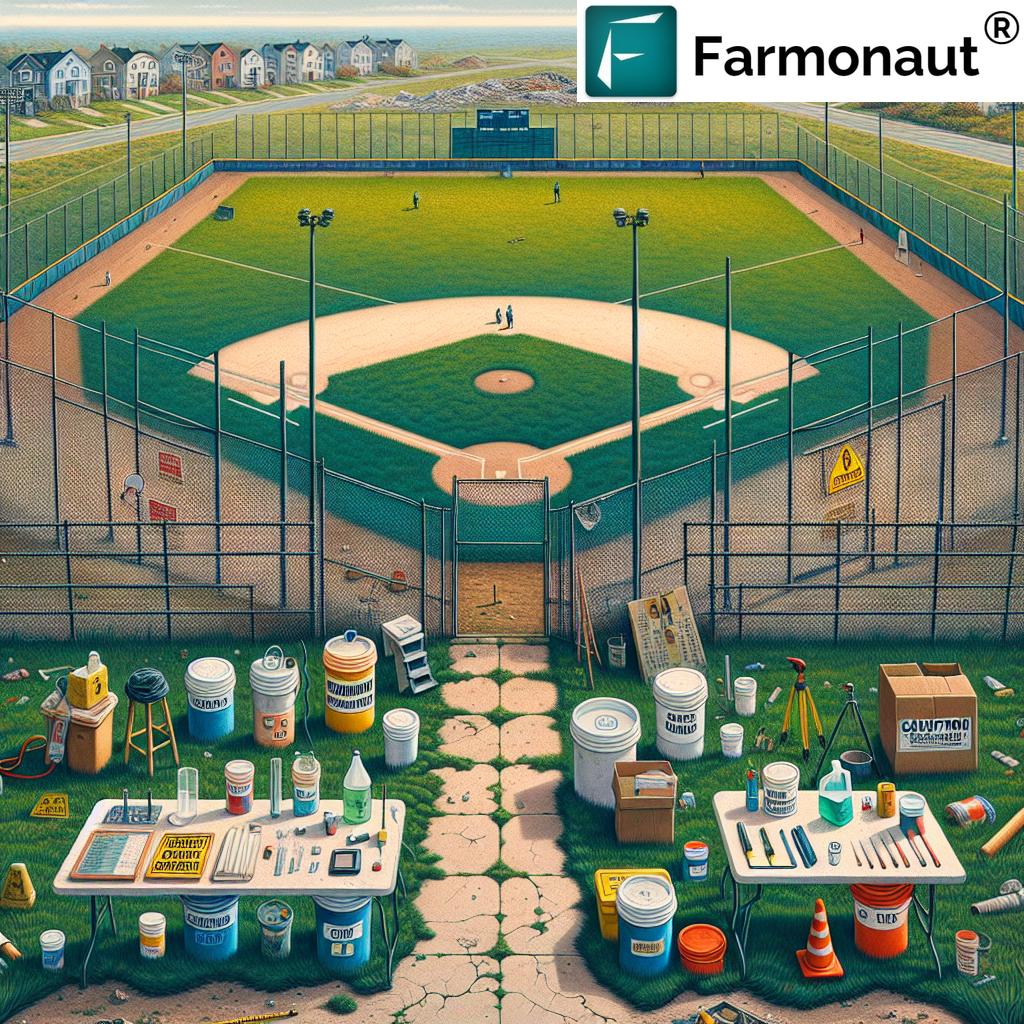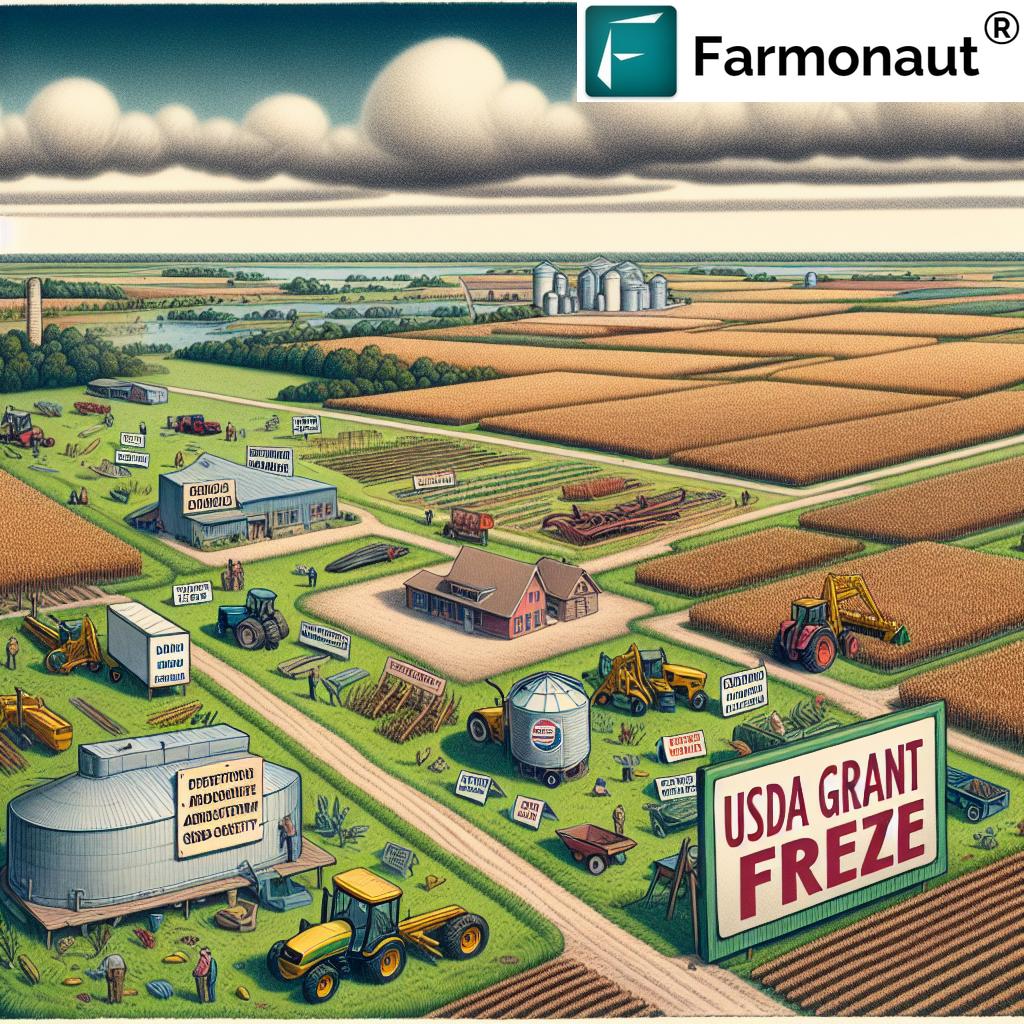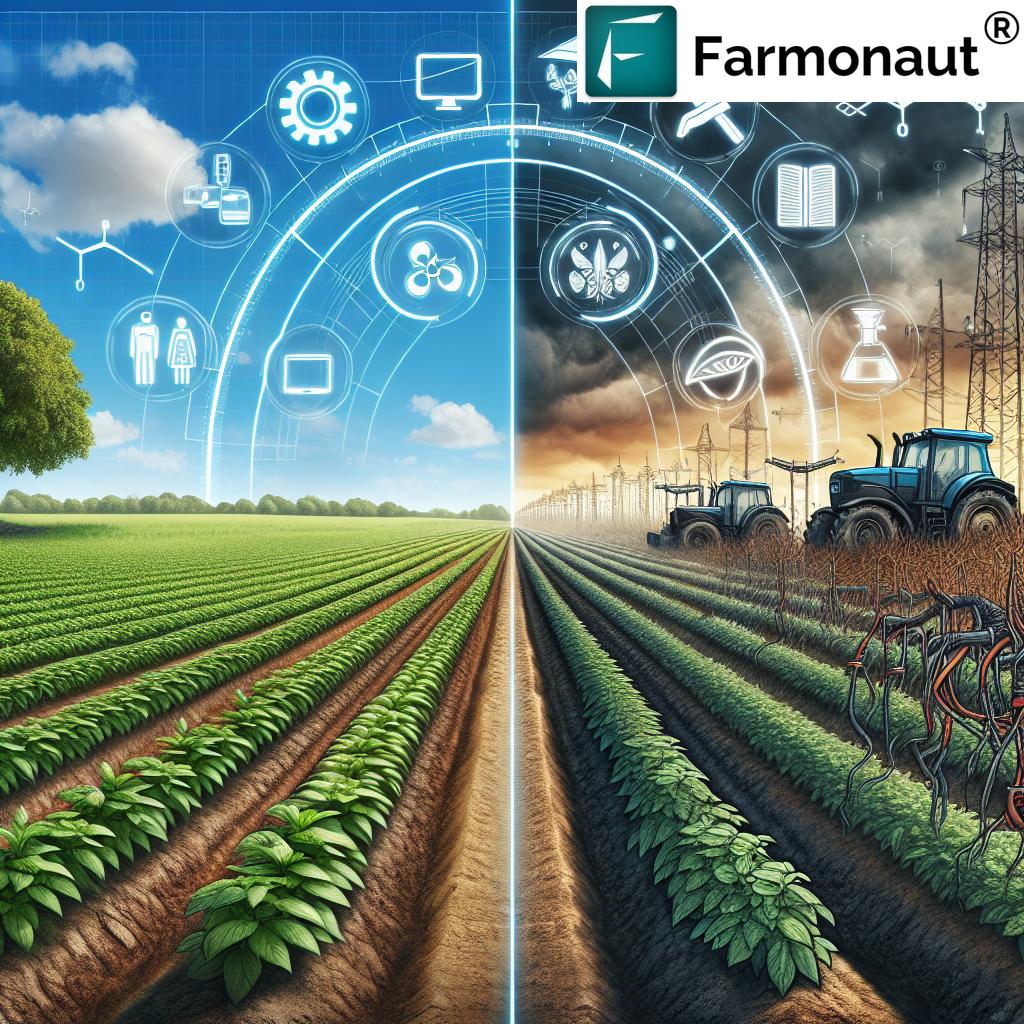Agricultural Land Management Maplewood, Morristown, Bordentown NJ: Strategies for Sustainable Farming in 2025
Meta Description: Agricultural land management in Maplewood, Morristown, and Bordentown NJ: Explore sustainable soil, water, and crop strategies for 2025 and beyond. Enhance productivity while preserving environmental quality with forward-thinking practices.
“Maplewood, Morristown, and Bordentown NJ together cover over 5,000 acres of managed agricultural land.”
Table of Contents
- Introduction: 2025 and the Imperative for Sustainable Agricultural Land Management in NJ
- The Regional Context: Key Differences in Maplewood, Morristown, and Bordentown
- Soil Conservation & Health: Foundations of Productive Farmland
- Water Resource Management: Adapting to New Jersey’s Changing Climate
- Crop Diversification & Rotation: Resilience through Variety
- Land Use Planning & Farmland Preservation in NJ’s Growing Communities
- Technology & Precision Agricultural Land Management in Maplewood, Morristown, Bordentown NJ
- Comparative Table of Sustainable Agricultural Practices Across Maplewood, Morristown, and Bordentown
- Farmonaut Solutions: Modern Monitoring & Sustainable Management Tools
- Frequently Asked Questions about Agricultural Land Management in New Jersey
- Conclusion: Securing Sustainable Farming Across New Jersey in 2025 and Beyond
Introduction: 2025 and the Imperative for Sustainable Agricultural Land Management in NJ
In the evolving world of agricultural land management, areas like Maplewood, Morristown, and Bordentown NJ are at a pivotal point. As 2025 approaches, the imperative to embrace sustainable farming practices and harness advanced management technologies has never been greater. With unique geographical and climatic conditions, these New Jersey regions play a vital role in supporting local food systems, sustaining rural economies, and preserving our environmental quality.
Agricultural land management Maplewood NJ, agricultural land management Morristown NJ, and agricultural land management Bordentown NJ are no longer just about maximizing productivity. Strategic focus on soil health, water conservation, crop diversification, and land use planning is now essential for sustainable, resilient agricultural operations in the face of changing environmental and urban pressures.
Read on to discover how innovative agricultural land management and advanced technologies are shaping the future of farming in these dynamic NJ communities—and how we at Farmonaut are helping growers stay at the cutting edge with affordable, real-time solutions tailored for the challenges and opportunities in 2025 and beyond.
The Regional Context: Key Differences in Maplewood, Morristown, and Bordentown
The regions of Maplewood, Morristown, and Bordentown NJ each present distinct challenges and opportunities for agricultural land management:
Maplewood NJ
- Proximity to urban centers: More development pressures, land fragmentation, and a need for innovative land-use planning.
- Managed landscapes: Farms often coexist alongside suburban development, necessitating integrated conservation strategies.
Morristown NJ
- Rolling hills and fertile soils: A region known for diverse cropping and greater suitability for organic production.
- Livestock and crops coexist: Farms balance crops and animals, emphasizing rotational grazing, soil maintenance, and maintaining ecosystem balance.
Bordentown NJ
- Waterways and transportation networks: Direct access to the Delaware River drives effective distribution of farm products and enables large-scale farming operations.
- Collaborative watershed initiatives: Regional partnerships for water resource protection and runoff management are common, safeguarding both farm productivity and downstream ecosystems.
Our focus keyword “agricultural land management maplewood nj, agricultural land management morristown nj, agricultural land management bordentown nj” is central here. In all three areas, effective management—integrating modern monitoring, data-driven decision making, and sustainability—is not only critical for 2025, but for the viability of farming across the region for decades to come.
Farmonaut Web System Tutorial: Monitor Crops via Satellite & AI
Soil Conservation & Health: Foundations of Productive Farmland
Soil health drives every aspect of farm productivity and environmental sustainability. In Maplewood, Morristown, and Bordentown, soil conservation is evolving rapidly to counter threats like erosion, compaction, and nutrient loss, ensuring both immediate yields and long-term land viability.
Key Soil Conservation Methods for 2025
- Cover Cropping: Farmers maintain and improve soil by planting cover crops like clover, rye, or vetch during fallow periods. This adds organic matter, reduces erosion, and boosts soil structure.
- Reduced/No-Till Practices: By limiting soil disturbance, no-till farming preserves structure, reduces erosion, and increases carbon sequestration, making it a powerful tool for climate resilience.
- Organic Amendments: Compost or manure additions increase fertility and water-holding capacity, promoting sustainable productivity.
- Soil Testing & Precision Application: Regular soil testing guides precise fertilizer application, helping farmers reduce nutrient runoff into waterways and cut costs while maintaining nutrient balance.
Regenerative Agriculture 2025 ?: Carbon Farming, Soil Health & Climate-Smart Solutions | Farmonaut
For growers in Maplewood, Morristown, and Bordentown NJ, these practices are not just environmentally sound—they are vital strategies for meeting regulatory requirements, consumer demand, and resilience goals in 2025 and beyond.
Soil management is now deeply intertwined with carbon footprinting solutions, enabling both large and small farmers to track their progress toward climate goals. Learn more about how carbon footprinting is shaping the future of agriculture here.
The Vital Importance of Soil in Agriculture: Nurturing Earth’s Foundation for Sustainable Farming
We at Farmonaut are committed to advancing soil health worldwide with satellite-based monitoring and AI-powered insights that provide cost-effective, data-rich analysis for optimal, sustainable land management.
Water Resource Management: Adapting to New Jersey’s Changing Climate
“Soil conservation in these NJ towns could reduce water usage by up to 25% by 2025.”
Water management is a linchpin for agricultural land management in Maplewood, Morristown, and Bordentown NJ. Increasing climate variability—including more frequent droughts and flooding—requires innovative, adaptive strategies to ensure crop health, protect waterways, and sustain productivity.
Key Water Strategies for 2025
- Efficient Irrigation: Advanced systems like drip irrigation, coupled with soil moisture monitoring, minimize losses and ensure every drop counts.
- Rainwater Harvesting: Capture and storage of rainfall on farms reduces pressure on groundwater and municipal supplies, particularly in Maplewood NJ where urban encroachment tightens resource supply.
- Wetland Buffer Zones: Restoration of wetland areas on or near farms traps sediments and filters nutrients, reducing runoff into the Delaware River and local streams.
- Collaborative Watershed Planning: Especially in Bordentown, cross-sector initiatives protect shared water resources from farm to faucet.
- Smart Monitoring Tools: Satellite and ground-based moisture sensors deliver real-time, field-specific insight to optimize irrigation planning and avert water loss.
Satellite Soil Moisture Monitoring 2025 – AI Remote‑Sensing for Precision Agriculture
These innovations are indispensable for agricultural land management in 2025—especially as water conservation becomes a pre-condition for regulatory compliance and consumer confidence.
- Farmonaut API enables seamless integration of satellite-based field monitoring into any app or system, taking the guesswork out of water optimization.
- Developers can accelerate agri-tech innovation with direct access to environmental and farm management data via the Farmonaut Developer Documentation.
How Satellites and AI Revolutionize Water Management in Farming | Precision Agriculture with NDWI
Crop Diversification & Rotation: Resilience through Variety
Modern agricultural land management strategies in Maplewood, Morristown, and Bordentown NJ are moving beyond monocultures toward highly diversified crop rotations. This evolution:
- Breaks disease and pest cycles naturally
- Strengthens soil health, reduces erosion, and increases organic matter
- Meets growing consumer demand for organic, locally grown food
- Shields farmers from price volatility through access to multiple markets
Examples of Crops & Rotations in 2025
- Maplewood: Leafy greens, tomatoes, and specialty herbs for fast-turnover markets; leguminous cover crops for nitrogen fixing.
- Morristown: Corn, soybeans, small grains, and dairy/livestock integrated rotations; organic certification is a growing trend.
- Bordentown: Berries, orchard fruits, and mixed vegetables for direct-to-consumer sales, with small grains or clover rotations for rest and rejuvenation.
How Farmonaut’s Satellite Technology is Revolutionizing Land Use in Agriculture
These advanced practices don’t just enhance yields—they make our farmland more resilient, boost biodiversity, and safeguard the environmental health of our communities.
Learn about the benefits of traceability for diversified crops and how blockchain is transforming supply chain integrity for New Jersey growers: Explore Farmonaut’s Product Traceability Solutions.
Land Use Planning & Farmland Preservation in NJ’s Growing Communities
Effective land use planning is increasingly urgent for agricultural land management maplewood nj, agricultural land management morristown nj, and agricultural land management bordentown nj. In all three towns, development pressures threaten to chip away at productive farmland and fragment rural landscapes.
Key Land Use Planning Strategies
- Agricultural Easements: These legal tools permanently protect farmland from non-agricultural development.
- Effective Zoning Policies: Local governments enact agricultural zoning to confine residential, commercial, or industrial encroachment.
- Youth Farmer Support: Programs encourage younger generations to enter agriculture through incentives, training, and access to land.
- Biodiversity Initiatives: Projects restore buffer strips, pollinator habitats, and wildflower zones on working farms.
Farmonaut Large Scale Field Mapping & Satellite Based Farm Monitoring | How To Get Started
These approaches not only maintain the agricultural base of Maplewood, Morristown, and Bordentown but also promote broader conservation and quality-of-life benefits throughout these vibrant New Jersey communities.
If you manage multiple farm parcels or are an agricultural land trust, Farmonaut’s Large Scale Farm Management Solution can help unify your surveillance, monitoring, and reporting under one powerful satellite-driven dashboard while supporting data-backed conservation planning.
Technology & Precision Agricultural Land Management in Maplewood, Morristown, Bordentown NJ
As we step into 2025, precision agriculture is not a luxury but a necessity for agricultural land management in the fiercely competitive, regulation-driven environment of New Jersey.
Latest Technologies Transforming Local Farming
- Satellite Imagery: Delivers instant health maps of crops, enabling proactive fertilization, irrigation, and disease management.
- Soil Moisture Sensors & Smart Devices: Enable spot-checking of field conditions, so farmers never over- or under-water.
- Drones & Field Robots: Support targeted pest management and reduce labor costs for vast fields.
- Blockchain Record-Keeping: Facilitates supply chain transparency, organic certification, and traceability on every harvested product.
- AI-based Insights: Enable real-time alerts and prescriptive recommendations for soil, water, and crop-cycle decisions.
JEEVN AI: Smart Farming with Satellite & AI Insights
At Farmonaut, we believe technology should empower every farmer—not just large corporate operations. Our solutions range from fleet management for agricultural machinery to satellite-based loan and insurance support, making modern farming accessible, scalable, and efficient for all.
Interested in holistic crop monitoring and planting advisory? Discover our crop plantation and forest advisory platform here.
Comparative Table of Sustainable Agricultural Practices Across Maplewood, Morristown, and Bordentown
| Location | Soil Management Practice | Water Conservation Method | Crop Rotation/Selection Strategy | Est. Yield Improvement 2025 (%) | Est. Soil Health Index (out of 10) | Environmental Impact (CO₂ Reduction, tons/year) |
|---|---|---|---|---|---|---|
| Maplewood NJ | Cover cropping, composting, reduced tillage | Rainwater harvesting, urban runoff reuse | Diverse vegetables, herbs, legume rotations | +12% | 8.2 | Approx. 175 |
| Morristown NJ | No-till/strip-till, manure amendments | Drip irrigation, wetland buffer restoration | Corn-soybean-small grain, livestock integration | +16% | 8.7 | Approx. 210 |
| Bordentown NJ | Green manure, rotational grazing, nutrient balancing | Watershed management, smart moisture monitoring | Fruit-vegetable-berry, small grains, cover breaks | +14% | 8.5 | Approx. 185 |
*Estimated yield, soil health, and environmental impact figures are based on industry-accepted standards and local extension office recommendations for sustainable agriculture in relevant regions.
Farmonaut Solutions: Modern Monitoring & Sustainable Management Tools
As farms in Maplewood, Morristown, and Bordentown seek to balance productivity with sustainability, Farmonaut offers a technology platform to make affordable, satellite-driven insights universally accessible in 2025.
- Satellite-Based Monitoring: We provide field-level crop and soil condition updates, empowering growers with instant, actionable insights. Our multispectral imagery covers NDVI (Normalized Difference Vegetation Index) for crop vigor, tracks soil moisture, and surfaces nutrient hotspots—all crucial for modern farming.
- JEEVN AI Advisory System: Our advanced AI interprets satellite and field data, delivering tailored recommendations for nutrient management, irrigation, and optimal planting schedules.
- Blockchain-Based Traceability: Enhance supply chain trust by leveraging decentralized platforms for provenance, certification, and fraud prevention.
- Fleet & Resource Management: Our tools optimize logistics—reducing operating costs, elevating safety, and strengthening overall farm management.
- Environmental Impact Tracking: Comply with carbon and nutrient management regulations by monitoring CO₂ output, runoff, and soil quality in real time.
Farmonaut enables Maplewood, Morristown, and Bordentown farmers to transition from reactive crop management to proactive, data-driven sustainability. Learn more about our flexible, subscription-based pricing:
Frequently Asked Questions about Agricultural Land Management in New Jersey
What are the biggest challenges of agricultural land management in Maplewood, Morristown, and Bordentown NJ?
The major challenges include land fragmentation due to urban development, soil erosion, nutrient runoff, water scarcity or flooding, as well as the need for economic resilience amid fluctuating crop markets. Sustainable farming practices and technology adoption are essential to overcome these threats in 2025.
How does soil conservation reduce water usage?
Soil conservation efforts such as cover cropping and reduced tillage improve soil structure, boost organic matter, and increase water infiltration and retention. This directly translates into up to 25% less water needed for irrigation by 2025 in regions like Maplewood, Morristown, and Bordentown.
What is the role of crop diversification in farm resilience?
Crop diversification lessens the impact of pests, diseases, and price fluctuations. By rotating crops and integrating specialty options (like berries or herbs), farmers create more stable food systems and maintain higher soil health indices.
How can technology help small and mid-sized NJ farms?
Affordable satellite monitoring, AI analytics, API access, and weather-protected traceability tools—such as those offered by Farmonaut—enable even small farms to optimize inputs, reduce costs, and meet regulatory standards with ease.
Are there funding or loan solutions for sustainable farming in NJ?
Yes. Satellite-backed verification is revolutionizing agricultural loans and insurance, reducing fraud and making finance more accessible for growers investing in sustainable operations.
Conclusion: Securing Sustainable Farming Across New Jersey in 2025 and Beyond
The importance of agricultural land management Maplewood NJ, agricultural land management Morristown NJ, and agricultural land management Bordentown NJ cannot be overstated for the future of New Jersey’s agriculture. These unique regions—each with distinctive landscapes, resource challenges, and community spirit—are at the forefront of sustainability and innovation in farming.
- Soil conservation and smart nutrient management anchor productivity and environmental stewardship.
- Water efficiency and adaptive irrigation protect vital resources in a changing climate.
- Diversified, rotation-based cropping systems offer resilience against pest cycles and economic volatility.
- Proactive land use planning and preservation ensure farming remains a vibrant part of New Jersey’s landscape and identity.
- Technology and precision management tools democratize access to smart farming, making New Jersey’s agricultural communities models for others in 2025 and beyond.
At Farmonaut, we are committed to empowering every New Jersey grower—whatever the size or crop—with cost-effective, real-time tools for monitoring, planning, and sustainability. We believe the future of farming in Maplewood, Morristown, Bordentown, and across New Jersey is bright, resilient, and rooted in effective land management for generations to come.
Start your journey to smarter agricultural land management today with Farmonaut:
And if you’re a developer or forward-thinking agri-business, supercharge your app or system with powerful Farmonaut API integrations for field or environmental monitoring: Farmonaut API.
Together, we can cultivate sustainable, thriving agricultural communities in Maplewood, Morristown, Bordentown, and all across New Jersey—for 2025 and far beyond.












